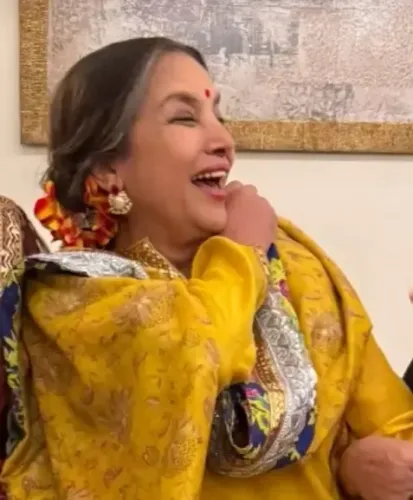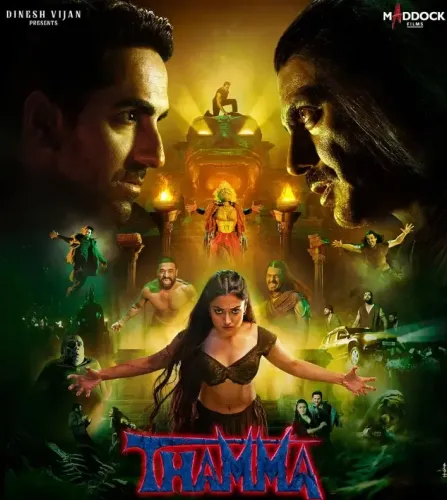What Did Ajay Devgn Say About Diljit Dosanjh's Trolling?

Synopsis
Key Takeaways
- Ajay Devgn highlights the importance of understanding different viewpoints.
- Criticism of Diljit Dosanjh revolves around the casting of a Pakistani actress.
- The entertainment industry is often influenced by political sentiments.
- Dialogue is essential for resolving conflicts in public opinion.
- Recent events have heightened tensions between India and Pakistan.
Mumbai, July 11 (NationPress) Bollywood icon Ajay Devgn, during the launch of his upcoming film 'Son of Sardaar 2' trailer in Mumbai, addressed the ongoing controversy involving fellow Punjabi artist Diljit Dosanjh.
At the trailer launch event held in the Andheri region of Mumbai, Ajay engaged with the media and expressed his views on the trolling that Diljit has been subjected to regarding the international release of his film featuring Pakistani actress Hania Aamir.
Ajay stated to the gathered media, “Dekhiye, I don't know where the trolling comes from. Kya sahi hai, kya galat hai (I can't determine what is right and wrong), as I am not in his position to comment on that.”
He further added, “Uski apni problems hogi. Baaki jo log keh rahe hain vo apne point of view se soch rahe hain. Toh jab do alag point of views hote hain, toh vo baith ke solve kiya ja sakte hain. Vo apne hisaab se soch rahe hain, aap apne hisaab se soch rahe hain. Aisa nahi hota hai (He must have his own challenges. The critics are viewing it from their perspective. When there are two differing viewpoints, they can only be resolved through dialogue. Each is applying their own rationale. This isn't how matters are resolved).”
Diljit has been facing considerable backlash due to the casting of Pakistani actress Hania Aamir in ‘Sardar Ji 3’. Notably, Hania had previously criticized Operation Sindoor, which was India's retaliatory strike following the horrific terrorist attack in Pahalgam this past April.
The Pahalgam attack tragically claimed the lives of 26 tourists, including a Nepali national, and was linked to the Resistance Front (TRF), a faction of the UN-designated terrorist group Lashkar-e-Taiba based in Pakistan.
In retaliation, India targeted and dismantled nine terror camps deep within Pakistani territory, which resulted in a temporary military standoff between the two nuclear-armed nations.




